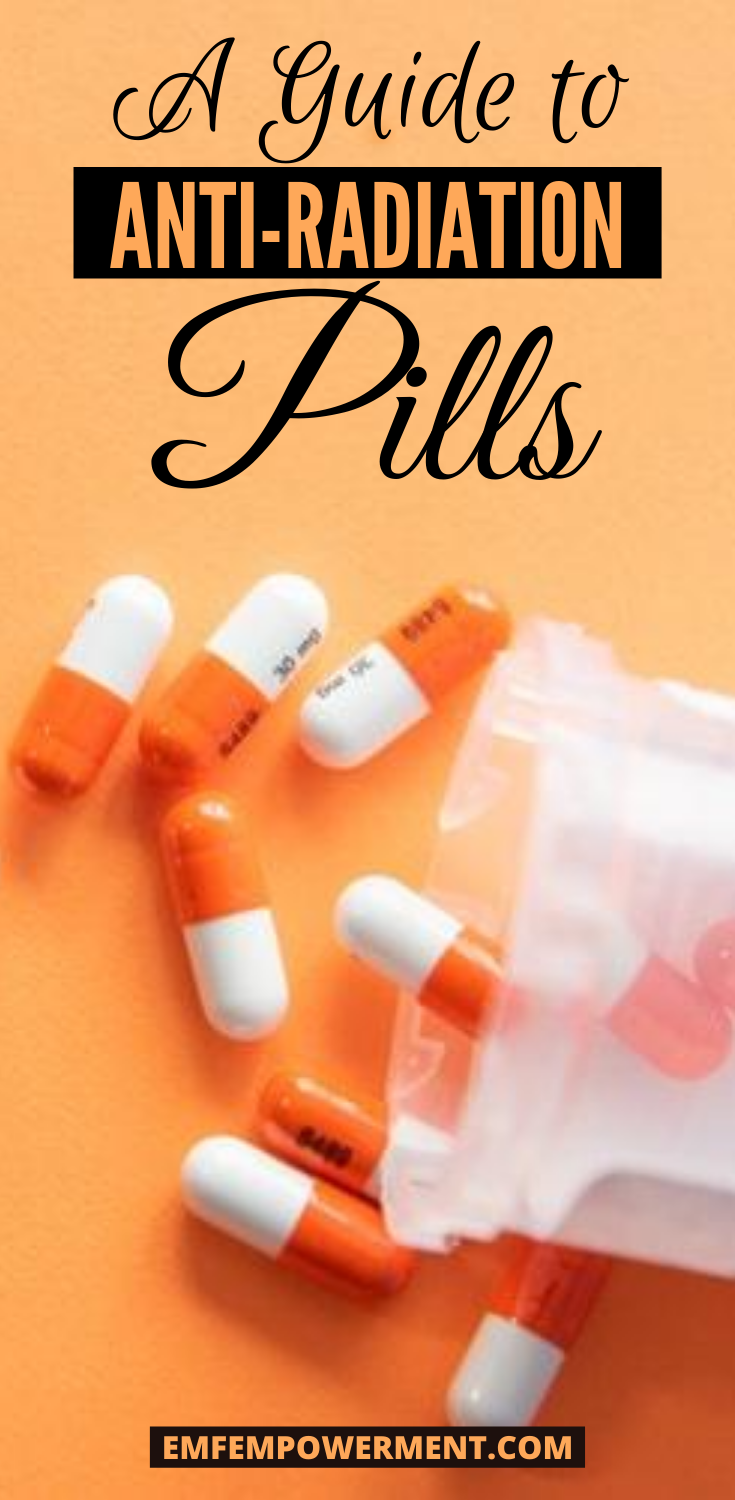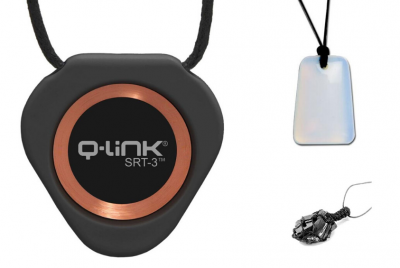When worn correctly, both Bluetooth and wired earbuds offer a lightweight and comfortable way to listen…
A Guide to Anti-Radiation Pills

*We may earn a commission for purchases made using our links. Please see our disclosure to learn more.
If you’re worried about the effects of EMF radiation and looking for an easy way to protect yourself, you may be wondering about anti-radiation pills. What, exactly, are they? Do these pills work against EMF radiation? Are there any potential health risks to ingesting them?
What are anti-radiation pills?
Before we dive into specifics on anti-radiation pills, it’s first helpful to have an understanding of the difference between ionizing and non-ionizing radiation. All forms of radiation are found on the electromagnetic spectrum. On one end, you have ionizing radiation. This includes x-rays, alpha rays, and ultraviolet light. This form of radiation has enough energy to split an atom.
Non-ionizing radiation is found at the other end of the electromagnetic spectrum. This form of radiation includes radiofrequency, infrared, microwave, and extremely-low frequency waves. Non-ionizing radiation lacks the energy necessary to split an atom. To learn more about the differences between ionizing and non-ionizing radiation, refer to our guide.
There are a number of anti-radiation pills out there, intended to protect different areas of the body against different types of radiation. One common characteristic all these pills have, however, is that they are intended to protect against ionizing radiation specifically.
Types of anti-radiation pills
There are four primary anti-radiation pills recognized by the Centers for Disease Control (CDC). They are:
- Potassium Iodide (KI). KI is derived from stable iodine. Taking KI after exposure to high amounts of radioactive iodine can help shield the thyroid gland from damage due to radiation. The thyroid gland works by absorbing iodine. When a person is exposed to radioactive iodine, that is taken in by the thyroid, leading to permanent and often irreversible damage. KI pills contain high amounts of stable iodine that is quickly absorbed by the thyroid gland. Thus, the gland becomes full of stable iodine and doesn’t absorb as much radioactive iodine. KI is generally taken in response to a public health emergency such as a nuclear meltdown, and only at the request of public officials.
- Prussian Blue. Prussian Blue is a medication used to treat cesium and thallium radiation poisoning. Cesium can be found in the ground after nuclear meltdowns, while thallium is an older style rodent killer that has been banned in the United States. Both are radioactive. When taken after exposure, Prussian Blue keeps the radioactive material trapped in the intestines, where the body can eventually flush it out. This medication is available by prescription only.
- Diethylenetriamine pentaacetate (DTPA). DTPA is given after exposure to radioactive plutonium, americium, and curium. DPTA binds to these elements and helps clear them from the body faster, lowering an individual’s overall level of exposure. DTPA is generally given by doctors and public health authorities after some kind of public health emergency. It can be injected or taken orally, and the number of treatments necessary depends on the length and severity of your exposure.
- Neupogen. Also known as filgrastim, Neupogen was approved by the FDA in 2015 to treat patients who had been exposed to high levels of radiation. The drug is thought to protect bone marrow from radiation damage, and it is sometimes given to cancer patients to protect against infection. Neupogen is given in injection form by a doctor, in response to a public health emergency dealing with radiation.
Potential health risks
The anti-radiation pills above can be helpful in response to a public health emergency, but they do come with risks. Those range from milder (Neupogen, for example, can cause bone pain and diarrhea) to severe (KI can cause permanent damage to the thyroid gland, the very thing it’s taken to prevent). The decision to take an anti-radiation pill shouldn’t be taken lightly.
Are there pills for non-ionizing EMF radiation?
No anti-radiation pills for non-ionizing radiation exposure exist. If you’re looking for protection in pill form, you may want to consider taking supplements or minerals. Refer to our guide to the Top 10 Anti Radiation Herbs and Supplements for EMF Protection for more information on what supplements to take.
Final thoughts
If you have accidentally been exposed to large amounts of ionizing radiation, check with your doctor to see if an anti-radiation pill is warranted. These pills, however, don’t help protect against the effects of non-ionizing radiation. You’re better off with natural supplements, as well as reducing your overall exposure. See Whole House EMF Protection: The Definitive Guide to learn more.




